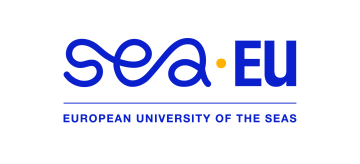ORCID ID 0000-0002-6343-5445
José María Maestre Maestre has been Professor of Latin Philology at the UCA since 1991. A specialist in Renaissance Latin, he is the author of more than 100 publications on the Latin works of the humanists of the Hispanic Golden Age. At the UCA he has directed several university departments. He has obtained 9 research national projects and 3 regional projects, as well as leading 2 projects of the Network of Excellence of the National Plan of R+D. In 2018, he was appointed as an evaluator by the CNEAI and was awarded the International Prize "Arpino Città di Cicerone". He is currently President of SELAT.
The main objective of the group is the formation of a corpus of the Latin literature of the Spanish Renaissance. The group has received constant funding in 11 national and 3 regional projects. A large number of researchers from Spanish and foreign universities have also participated in these projects. The group maintains a high rate and number of publications indexed in the most prestigious databases; maintains its own text collection (quartile 2 in SPI 2018) and the scientific journal 'Calamus renascens' (indexed in ERIH PLUS); has directed more than 40 doctoral theses; and has obtained more than 30 "sexenios de investigación" and 6 "sexenios de transferencia".
STUDY, CRITICAL EDITION, TRANSLATION AND NOTES OF LATIN WORKS BY RENAISSANCE HUMANISTS WITH SPECIAL ATTENTION TO THE ANDALUSIAN CULTURAL HERITAGE.
The research group has created an internationally recognized methodology for critical editing and philological-historical study of humanistic Latin texts. The foundations of it can be read in the work of J. M. Maestre Maestre "La edición crítica de textos latinos humanísticos. I", in Humanism and survival of the classical world II. Homage to Luis Gil, Cádiz - Alcañiz, 1997, vol. II.3, pp. 1051-110. The group is also a pioneer in projecting this methodology to the digital paradigm through the new tools and resources of the Digital Humanities.
1. La medida del pie romano: nota de crítica textual sobre un problema filológico-matemático de la Repetitio Sexta de Mensuris de Nebrija
José María Maestre Maestre
Euphrosyne (2019) Vol: 47. Pgs: 191-220
ISSN: 0870-0133
2. El Infierno, según Steve McQueen. Shame (2011) y las Hijas de Dánao.
Díaz-Gito, Manuel Antonio
International Journal of Classical Tradition. 2019.
3. Nuevos datos sobre la versificación latina de Benito Arias Montano: el libro V de los Secula
Dávila-Pérez, Antonio
Euphrosyne. 2019. Vol: 47. Pgs. 287- 300.
ISSN: 0870-0133
4. Polidoro Virgilio en la tradición literaria española: elogio y mofa de una auctoritas.
Serrano-Cueto, Antonio
Criticón. 2020. Vol: 138. Pgs. 79-97.
5. Un adelantado del neoestoicismo en España: Pedro Vélez de Guevara y sus Selectae sententiae (1557)
Pozuelo-Calero, Bartolomé
Ágora. Estudos clássicos em debate. 2019. Vol: 21. Pgs. 223-247.
ISSN: 0874-5498
